Sarah Jones
Hall of Mirrors
24 Jul - 29 Aug 2021
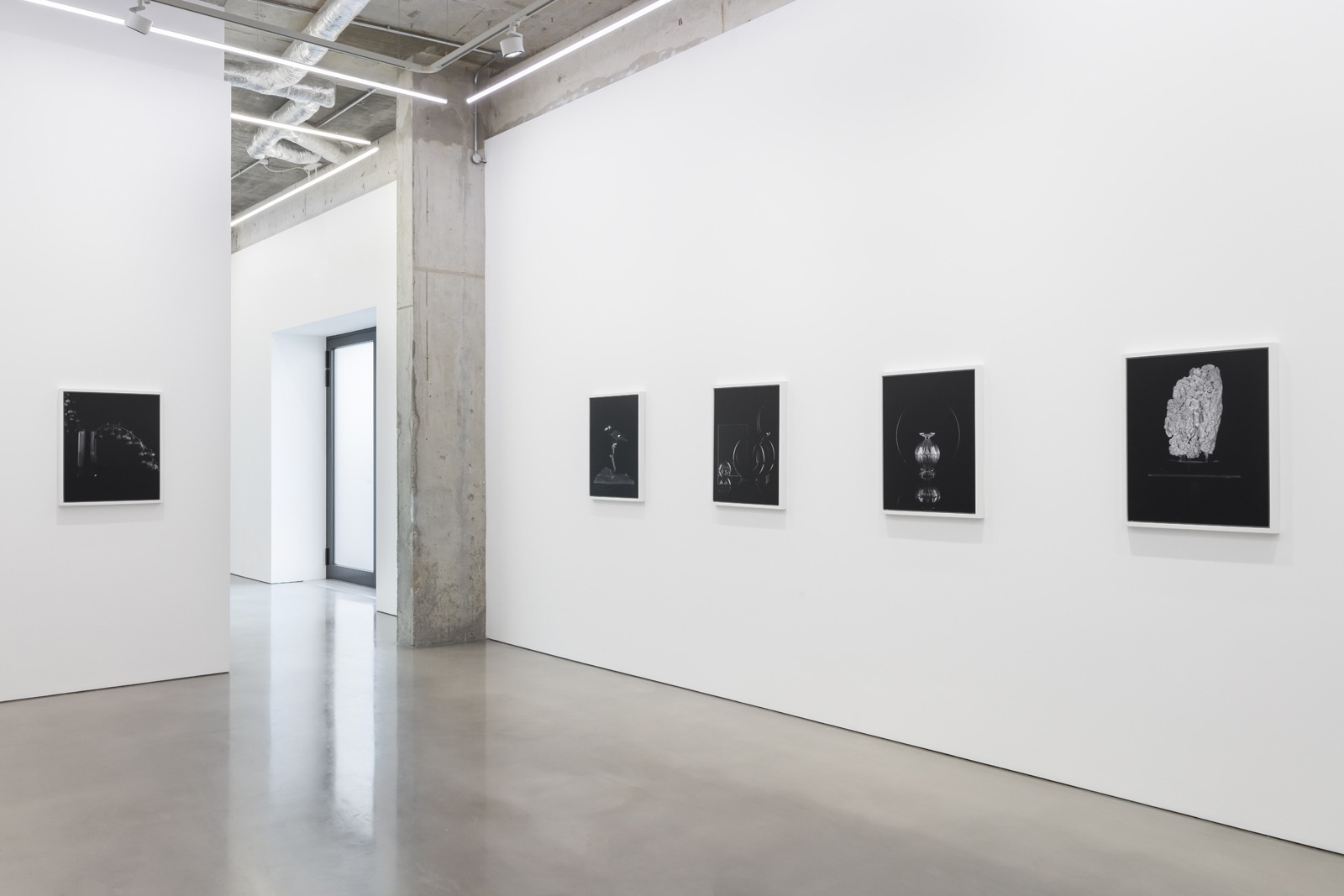
Sarah Jones
Hall of Mirrors, exhibition view, Maureen Paley, London 2021
© Sarah Jones, courtesy Maureen Paley, London
Hall of Mirrors, exhibition view, Maureen Paley, London 2021
© Sarah Jones, courtesy Maureen Paley, London
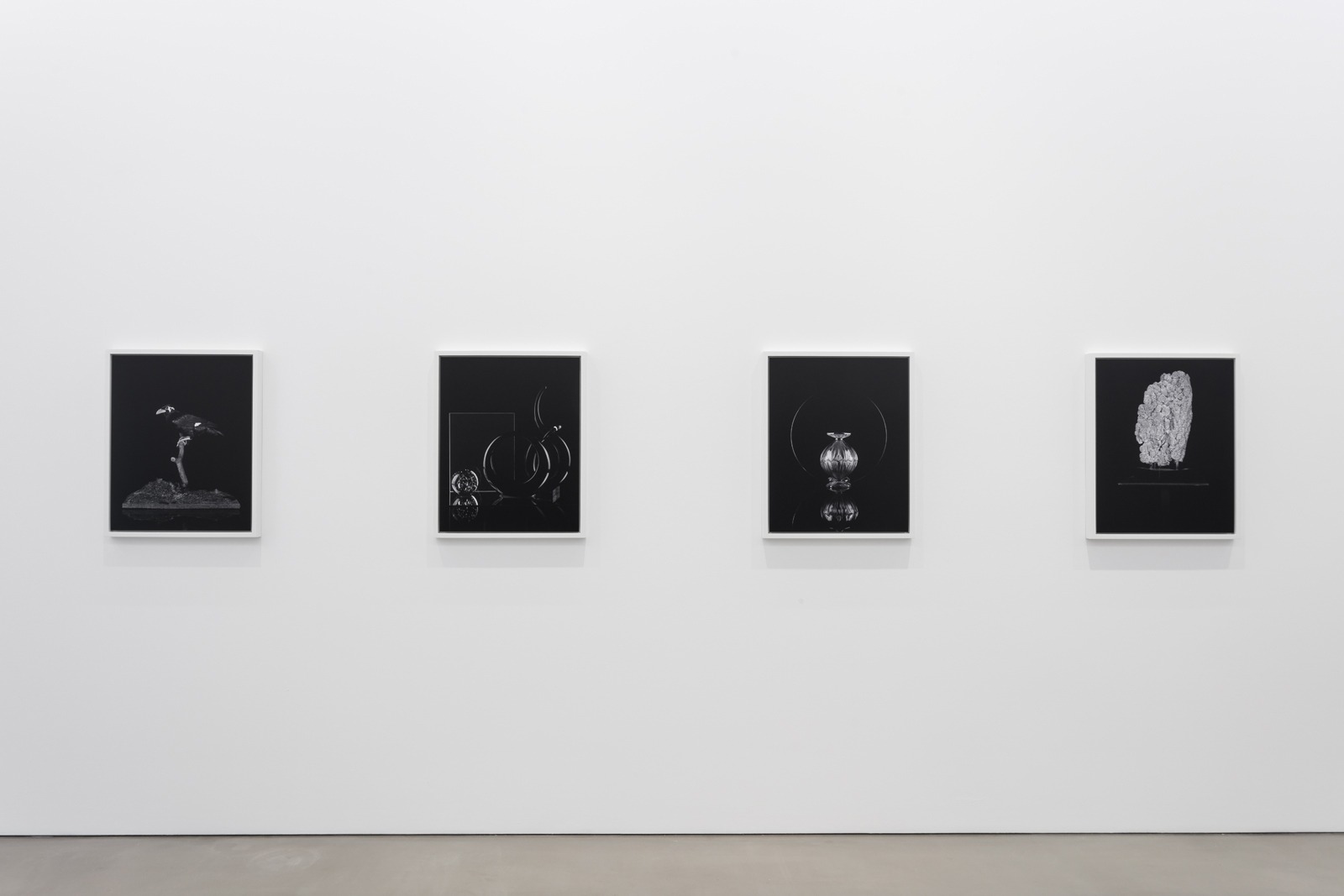
Sarah Jones
Hall of Mirrors
exhibition view, Maureen Paley, London 2021
© Sarah Jones, courtesy Maureen Paley, London
Hall of Mirrors
exhibition view, Maureen Paley, London 2021
© Sarah Jones, courtesy Maureen Paley, London
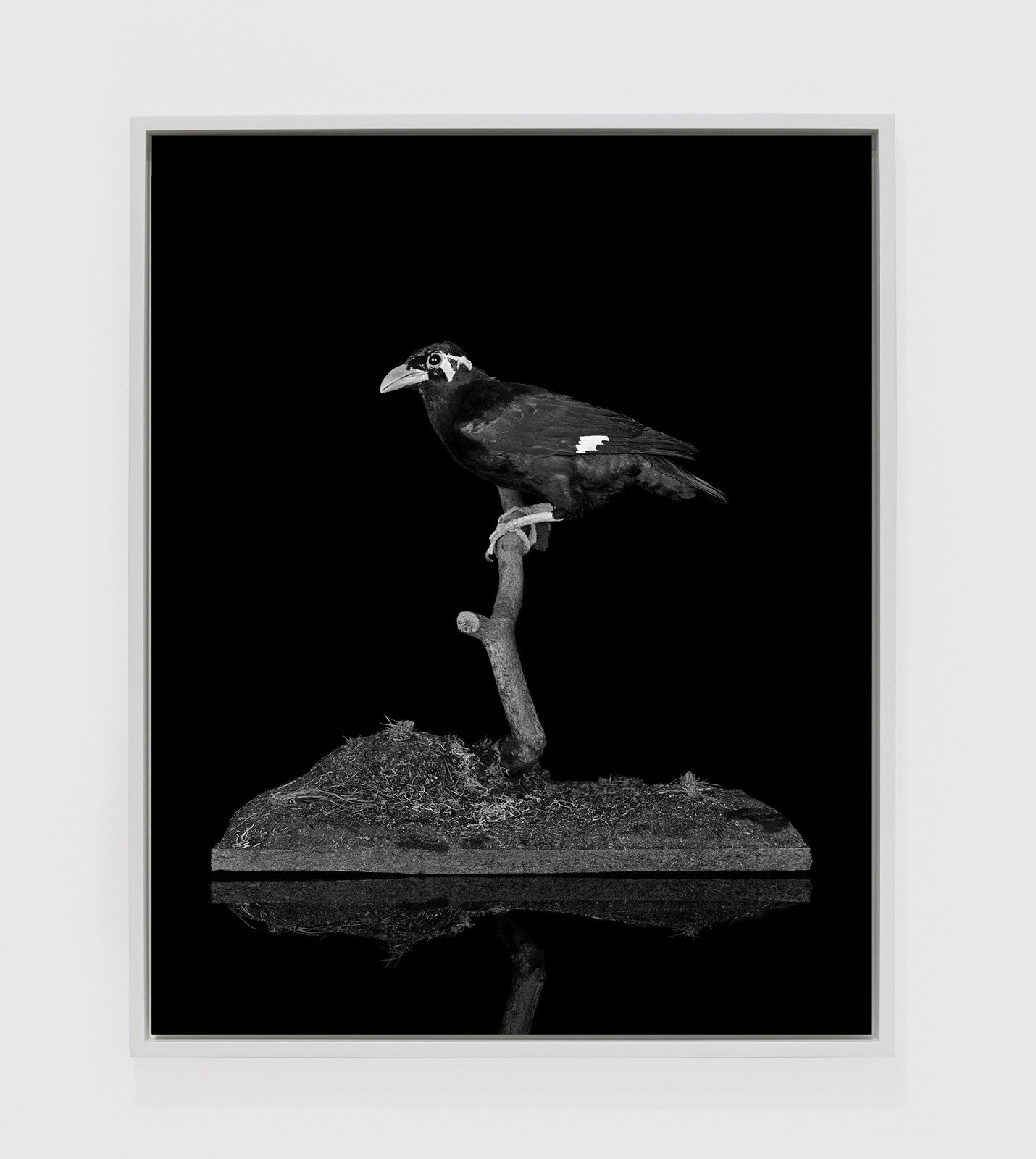
Sarah Jones
Mynah (Mimic) (I), 2021
framed c-type print from black and white negative mounted on aluminium, 60 x 48 cm
© Sarah Jones, courtesy Maureen Paley, London
Mynah (Mimic) (I), 2021
framed c-type print from black and white negative mounted on aluminium, 60 x 48 cm
© Sarah Jones, courtesy Maureen Paley, London
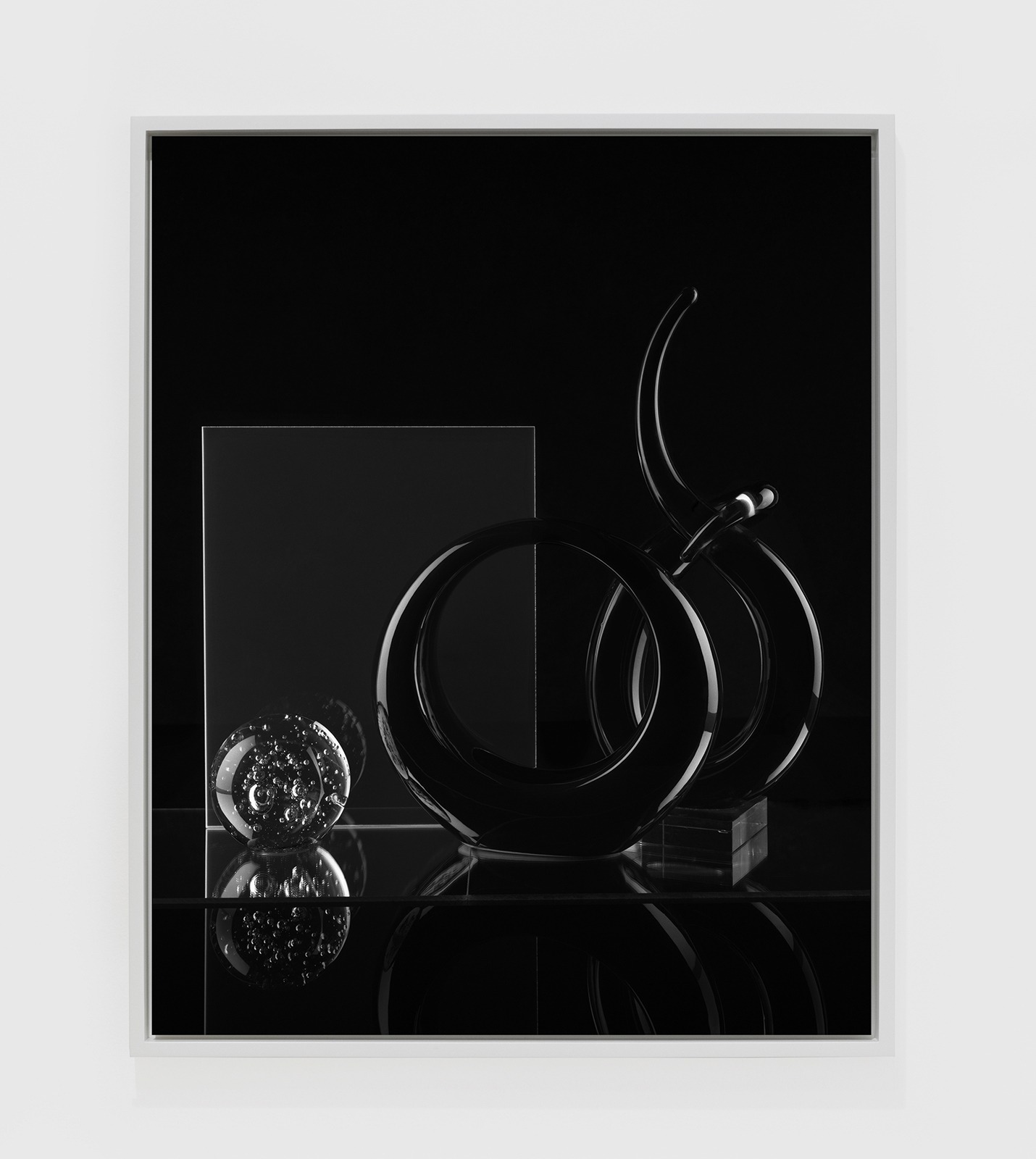
Sarah Jones
Le Sang d’un Poète (for Cocteau) (I), 2021
framed c-type print from black and white negative mounted on aluminium, 60 x 48 cm
© Sarah Jones, courtesy Maureen Paley, London
Le Sang d’un Poète (for Cocteau) (I), 2021
framed c-type print from black and white negative mounted on aluminium, 60 x 48 cm
© Sarah Jones, courtesy Maureen Paley, London
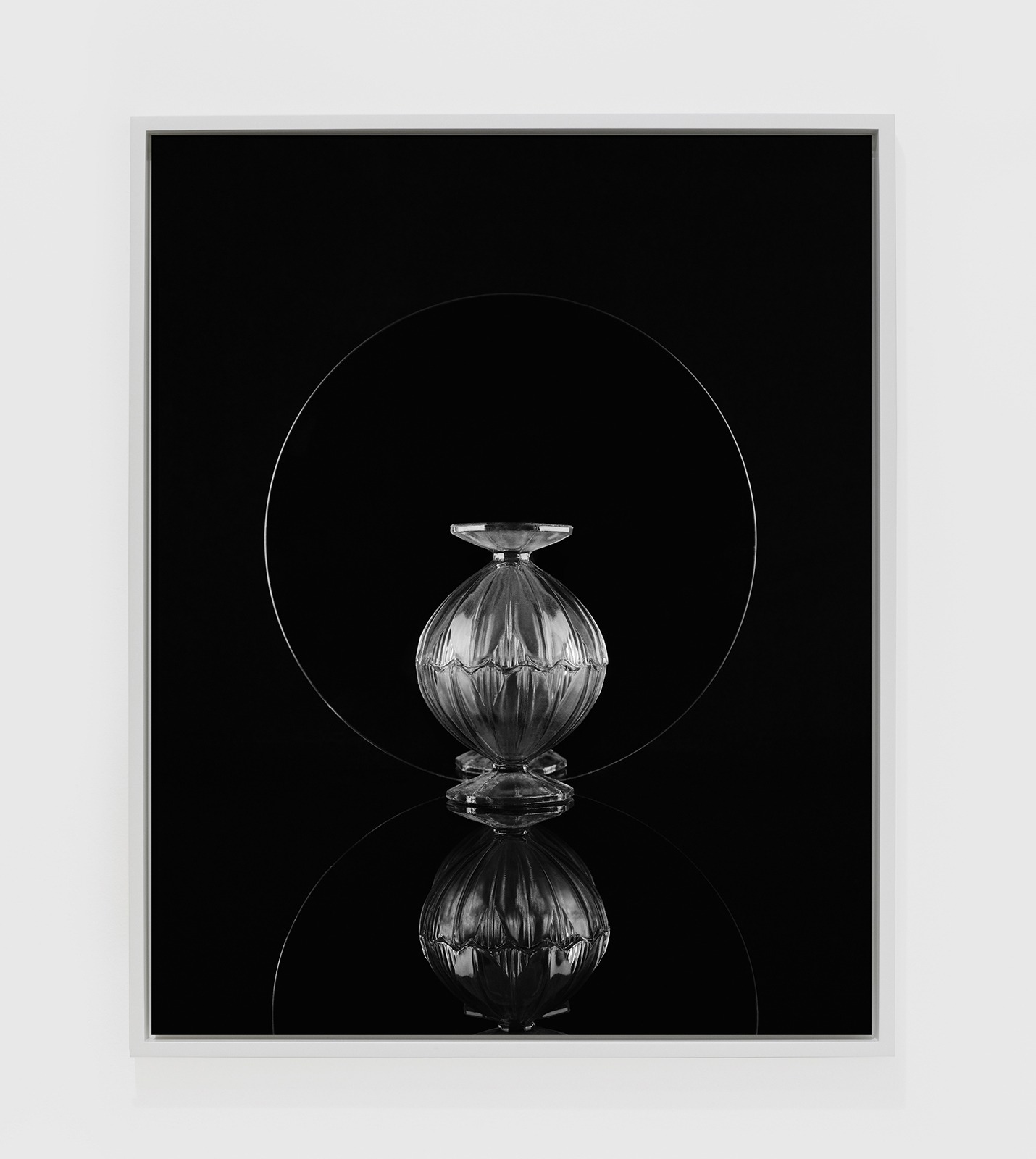
Sarah Jones
Mirror (Pandora) (I), 2021
framed c-type print from black and white negative mounted on aluminium, 60 x 48 cm
© Sarah Jones, courtesy Maureen Paley, London
Mirror (Pandora) (I), 2021
framed c-type print from black and white negative mounted on aluminium, 60 x 48 cm
© Sarah Jones, courtesy Maureen Paley, London
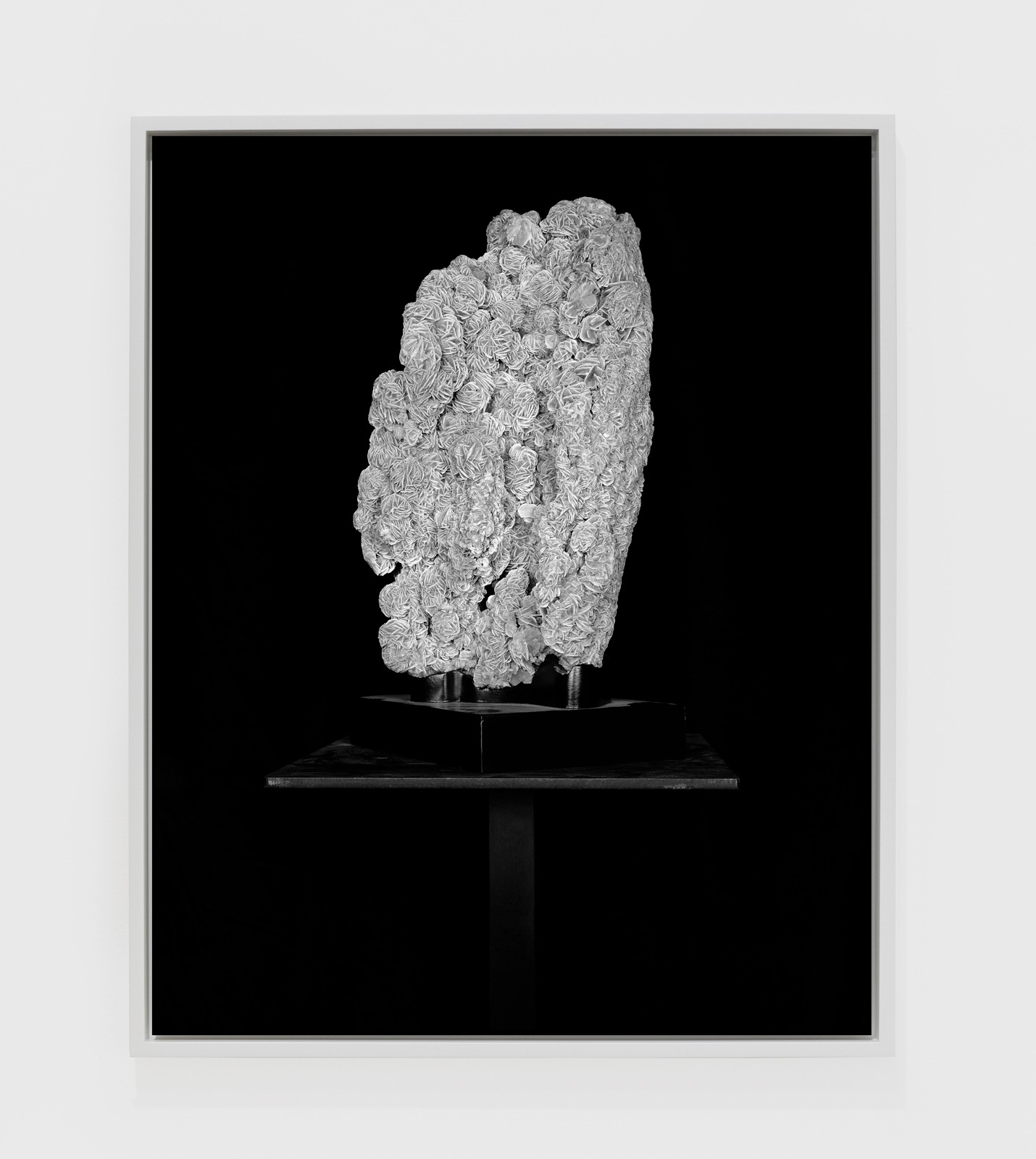
Sarah Jones
Desert Rose (I), 2021
framed c-type print from black and white negative mounted on aluminium, 60 x 48 cm
© Sarah Jones, courtesy Maureen Paley, London
Desert Rose (I), 2021
framed c-type print from black and white negative mounted on aluminium, 60 x 48 cm
© Sarah Jones, courtesy Maureen Paley, London
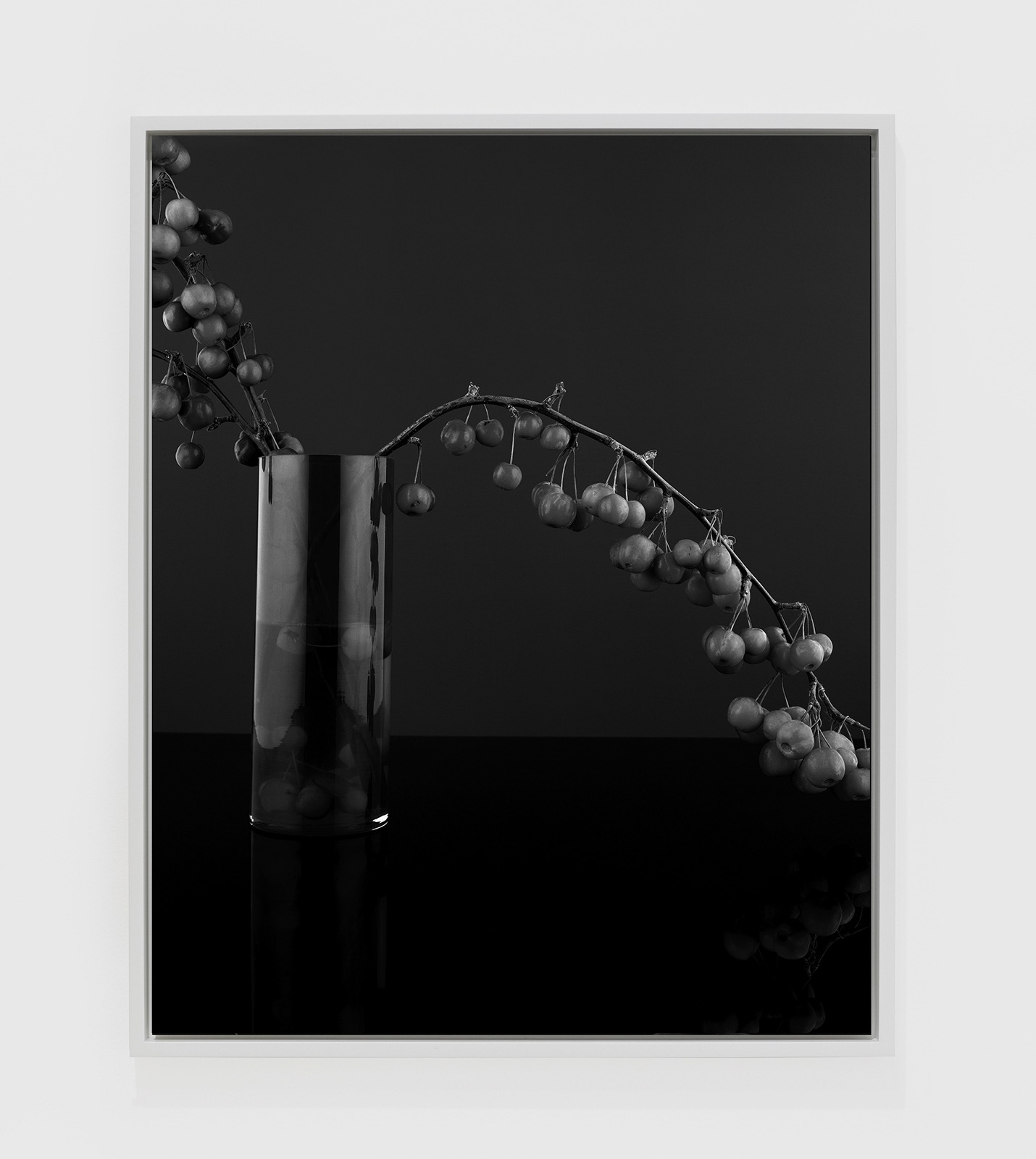
Sarah Jones
Love Apples (I), 2021
framed c-type print from black and white negative mounted on aluminium, 60 x 48 cm
© Sarah Jones, courtesy Maureen Paley, London
Love Apples (I), 2021
framed c-type print from black and white negative mounted on aluminium, 60 x 48 cm
© Sarah Jones, courtesy Maureen Paley, London
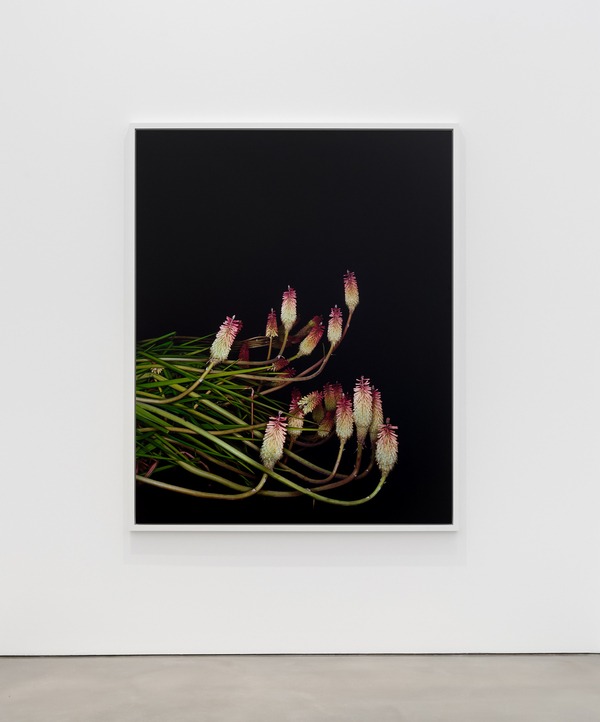
Sarah Jones
Torch Lily (Icarus) (I), 2021
framed c-type print mounted on aluminium
152 x 122 cm
© Sarah Jones, courtesy Maureen Paley, London
Torch Lily (Icarus) (I), 2021
framed c-type print mounted on aluminium
152 x 122 cm
© Sarah Jones, courtesy Maureen Paley, London
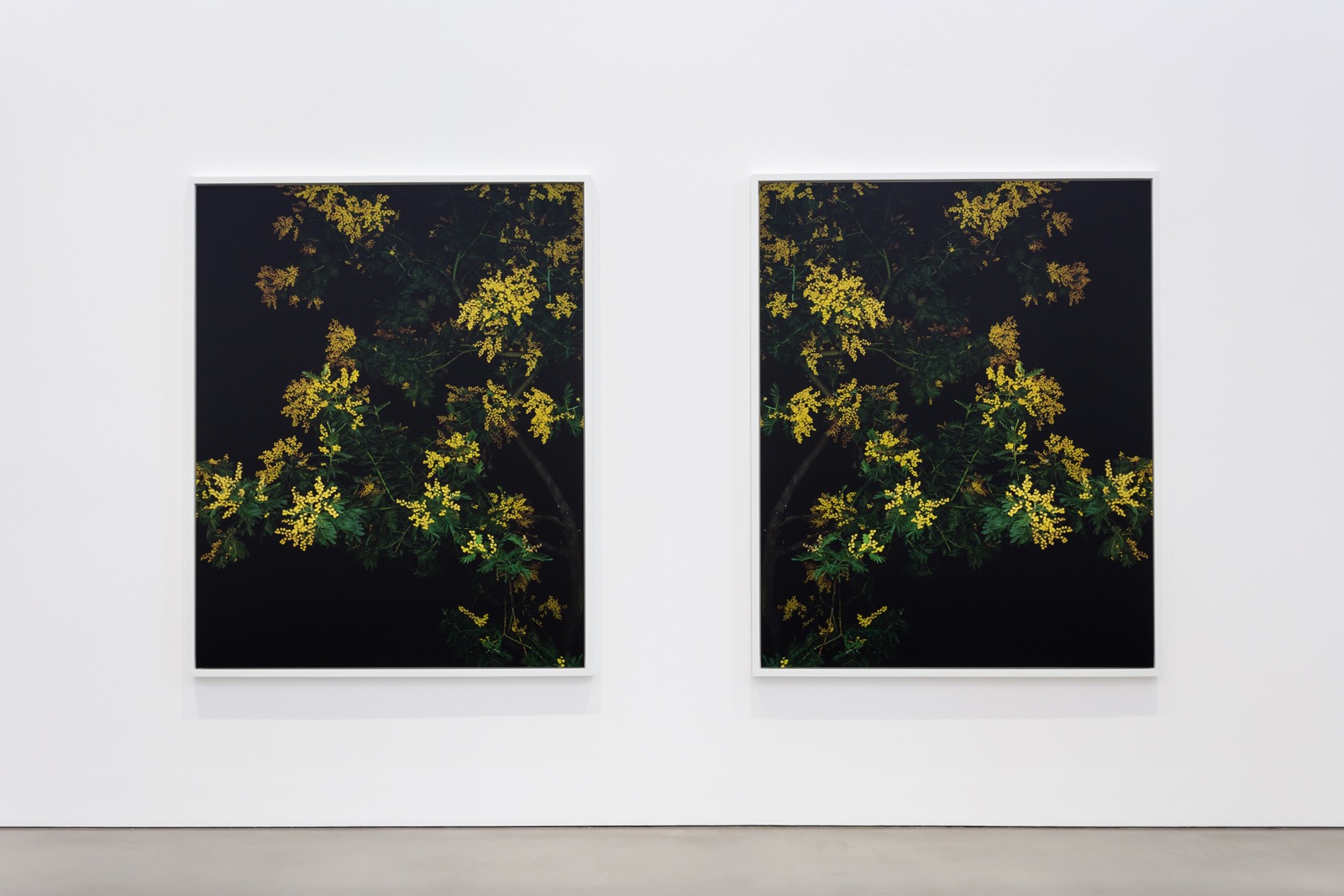
Sarah Jones
Mimosa (Actor) (I)
framed c-type print mounted on aluminium, 152 x 122 cm, 2021
Mimosa (Actor) (II)
framed c-type print mounted on aluminium, 152 x 122 cm, 2021
© Sarah Jones, courtesy Maureen Paley, London
Mimosa (Actor) (I)
framed c-type print mounted on aluminium, 152 x 122 cm, 2021
Mimosa (Actor) (II)
framed c-type print mounted on aluminium, 152 x 122 cm, 2021
© Sarah Jones, courtesy Maureen Paley, London
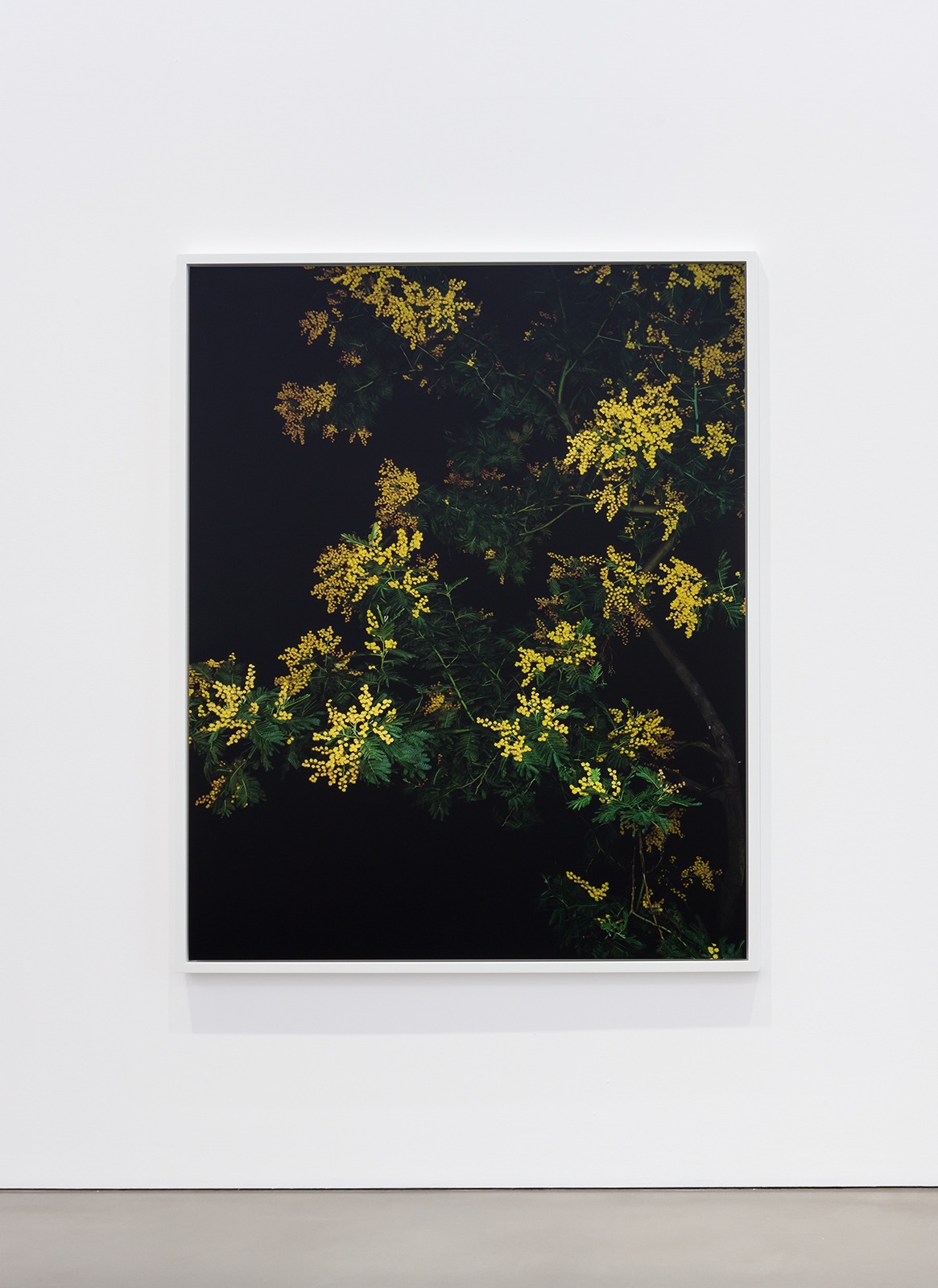
Sarah Jones
Mimosa (Actor) (I), 2021
framed c-type print mounted on aluminium
152 x 122 cm
© Sarah Jones, courtesy Maureen Paley, London
Mimosa (Actor) (I), 2021
framed c-type print mounted on aluminium
152 x 122 cm
© Sarah Jones, courtesy Maureen Paley, London
Maureen Paley is pleased to present the sixth solo exhibition by Sarah Jones and her first in the gallery’s new location at 60 Three Colts Lane.
The new work by Sarah Jones builds upon her distinct photographic language that dissolves the hazy glare of day into the weight of a photographic night, condensing a recognizable sense of location with the photographer’s studio. Her subjects and objects are chosen as much for their illusionary surfaces as for their metaphysical and metaphorical potential. The imagery in her latest work references Cocteau’s 1930 film Le Sang d’un Poète (The Blood of a Poet), the first film in his Orphic trilogy, in which the artist-protagonist enters a parallel dreamscape of hallucinogenic allegories hidden behind doors, screens and windows, or found in fluid mirrors. By merging three-dimensionality and transparency into the two-dimensional photograph, Jones’ work suggests a space for possibility that serves as both a memento mori and a way to re-animate a scene.
A preserved magpie appears on a faux natural wooden perch in Magpie (Camera) (I) and (II) - stilled again by the artist’s camera. Known to be a singular creature that collects objects that catch the light, the magpie’s behaviour can be seen to resemble the optics of a camera lens. Jones’ magpie is shaped by the mechanics of the image and is presented once, and, once more in reverse, as if reflected in a mirror. Mynah (Mimic) (I) presents an example of this particular bird set in an artificial tableau. Muted within the image, mynah birds are known for their ability to imitate the human voice and other ambient sounds.
The act of mirroring is further evident in a diptych that describes a flowering mimosa tree – a plant that mimics and responds to engagement by curling its leaves on touch. Mimosa (Actor) (I) and (II) unfolds from a central axis, each image reflecting the other. In Screen (Orphée) (I), circular mirrors reflect a dark cloth that hangs between them and the camera, conflating opacity and transparency within the image. In another image a mirror ball, Mirror Ball (Narcissus) (II), hangs in the studio, suspended in a darkened photographic space above its own eternal reflection, while Torch Lily (Icarus) (I) presents an entwined plant, set into a photographic night, following its own phototrophic desire to bend upwards towards the light.
Jones’ imagery continues to allude to the photographic understanding of the collapsing of time and space. Desert Rose (I) depicts the petal-like growth structure of a crystal that forms through deep time into an ossified mirage of a plant, while air bubbles appear suspended in the blown glass sphere of Le Sang d’un Poète (for Cocteau) (I). Through these works Jones asks what a photographic image can ever really hold of its subject’s actuality, and suggests a multi-layered photographic realm built on slow looking.
Sarah Jones lives and works in London. Previous public solo exhibitions include New Pictures 8, Minneapolis Institute of Arts, Minneapolis, USA, 2013; Sarah Jones: Photographs, National Media Museum, Bradford, UK, 2007; Huis Marseille Foundation for Photography, Amsterdam, The Netherlands, 2000; Museum Folkwang Essen, Germany, 1999; Centre for Photography, Universidad de Salamanca, Spain, 1999; Museum Reina Sofia, Madrid, Spain, 1999; Le Consortium, Dijon, France, 1997.
Group public exhibitions include Unearthed: Photography’s Roots, Dulwich Picture Gallery, London, UK, 2021; Summer Exhibition, Royal Academy of Arts, (room curated by Jane and Louise Wilson), London, UK, 2020; Home Sweet Home, 1970-2018: The British Home, A Political History, Les Rencontres D’Arles, Arles, France (C), touring: Institut Pour La Photographie, Lille, France and Un monde, un seul, pour demeure, FRAC Nouvelle-Aquitaine, Bordeaux, France, 2019; Je est un.e autre, FRAC Poitou-Charentes - Angoulême, France, 2018; 10 YEARS OLD, Fondazione Fotografia Modena, Italy, 2017; Paradis perdu, FRAC - Nord-Pas de Calais, Dunkerque, France and Contemporary Photography from North West Europe. Chapter I, Fondazione Fotografie Modena, Italy, 2015; Nouvelle Génération, FRAC Nord-Pas de Calais, Dunkerque, France, 2014; Seduced by Art: Photography Past and Present, National Gallery, London, UK, CaixaForum Barcelona and CaixaForum Madrid, Spain 2013; Der Mensch und Seine Objekte, Museum Folkwang, Essen, Germany, 2012; Observers: Photographers of the British scene from 1930s to now, Galeria de Arte do Sesi, Avenida Paulista, Sao Paulo, Brazil, 2012; Signs of a struggle: Photography in the Wake of Postmodernism, Victoria and Albert Museum, London, UK, 2011; A Sense of Perspective, Tate Liverpool, UK, 2011; Street & Studio: An Urban History of Photography, Tate Modern, London, UK and Museum Folkwang, Essen, Germany, 2008.
The new work by Sarah Jones builds upon her distinct photographic language that dissolves the hazy glare of day into the weight of a photographic night, condensing a recognizable sense of location with the photographer’s studio. Her subjects and objects are chosen as much for their illusionary surfaces as for their metaphysical and metaphorical potential. The imagery in her latest work references Cocteau’s 1930 film Le Sang d’un Poète (The Blood of a Poet), the first film in his Orphic trilogy, in which the artist-protagonist enters a parallel dreamscape of hallucinogenic allegories hidden behind doors, screens and windows, or found in fluid mirrors. By merging three-dimensionality and transparency into the two-dimensional photograph, Jones’ work suggests a space for possibility that serves as both a memento mori and a way to re-animate a scene.
A preserved magpie appears on a faux natural wooden perch in Magpie (Camera) (I) and (II) - stilled again by the artist’s camera. Known to be a singular creature that collects objects that catch the light, the magpie’s behaviour can be seen to resemble the optics of a camera lens. Jones’ magpie is shaped by the mechanics of the image and is presented once, and, once more in reverse, as if reflected in a mirror. Mynah (Mimic) (I) presents an example of this particular bird set in an artificial tableau. Muted within the image, mynah birds are known for their ability to imitate the human voice and other ambient sounds.
The act of mirroring is further evident in a diptych that describes a flowering mimosa tree – a plant that mimics and responds to engagement by curling its leaves on touch. Mimosa (Actor) (I) and (II) unfolds from a central axis, each image reflecting the other. In Screen (Orphée) (I), circular mirrors reflect a dark cloth that hangs between them and the camera, conflating opacity and transparency within the image. In another image a mirror ball, Mirror Ball (Narcissus) (II), hangs in the studio, suspended in a darkened photographic space above its own eternal reflection, while Torch Lily (Icarus) (I) presents an entwined plant, set into a photographic night, following its own phototrophic desire to bend upwards towards the light.
Jones’ imagery continues to allude to the photographic understanding of the collapsing of time and space. Desert Rose (I) depicts the petal-like growth structure of a crystal that forms through deep time into an ossified mirage of a plant, while air bubbles appear suspended in the blown glass sphere of Le Sang d’un Poète (for Cocteau) (I). Through these works Jones asks what a photographic image can ever really hold of its subject’s actuality, and suggests a multi-layered photographic realm built on slow looking.
Sarah Jones lives and works in London. Previous public solo exhibitions include New Pictures 8, Minneapolis Institute of Arts, Minneapolis, USA, 2013; Sarah Jones: Photographs, National Media Museum, Bradford, UK, 2007; Huis Marseille Foundation for Photography, Amsterdam, The Netherlands, 2000; Museum Folkwang Essen, Germany, 1999; Centre for Photography, Universidad de Salamanca, Spain, 1999; Museum Reina Sofia, Madrid, Spain, 1999; Le Consortium, Dijon, France, 1997.
Group public exhibitions include Unearthed: Photography’s Roots, Dulwich Picture Gallery, London, UK, 2021; Summer Exhibition, Royal Academy of Arts, (room curated by Jane and Louise Wilson), London, UK, 2020; Home Sweet Home, 1970-2018: The British Home, A Political History, Les Rencontres D’Arles, Arles, France (C), touring: Institut Pour La Photographie, Lille, France and Un monde, un seul, pour demeure, FRAC Nouvelle-Aquitaine, Bordeaux, France, 2019; Je est un.e autre, FRAC Poitou-Charentes - Angoulême, France, 2018; 10 YEARS OLD, Fondazione Fotografia Modena, Italy, 2017; Paradis perdu, FRAC - Nord-Pas de Calais, Dunkerque, France and Contemporary Photography from North West Europe. Chapter I, Fondazione Fotografie Modena, Italy, 2015; Nouvelle Génération, FRAC Nord-Pas de Calais, Dunkerque, France, 2014; Seduced by Art: Photography Past and Present, National Gallery, London, UK, CaixaForum Barcelona and CaixaForum Madrid, Spain 2013; Der Mensch und Seine Objekte, Museum Folkwang, Essen, Germany, 2012; Observers: Photographers of the British scene from 1930s to now, Galeria de Arte do Sesi, Avenida Paulista, Sao Paulo, Brazil, 2012; Signs of a struggle: Photography in the Wake of Postmodernism, Victoria and Albert Museum, London, UK, 2011; A Sense of Perspective, Tate Liverpool, UK, 2011; Street & Studio: An Urban History of Photography, Tate Modern, London, UK and Museum Folkwang, Essen, Germany, 2008.
